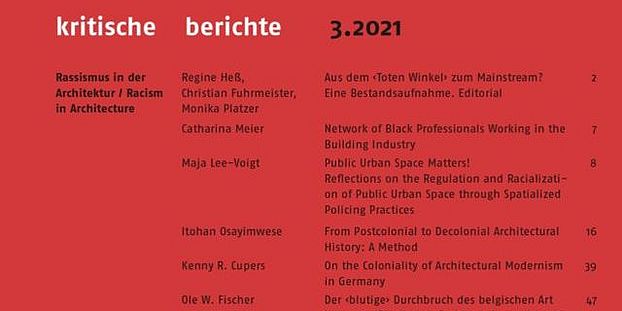On the Coloniality of Architectural Modernism in Germany

Kenny Cupers
Kritische Berichte - Zeitschrift für Kunst- und Kulturwissenschaften 49, 2 , 2021
Undoing structural racism in architecture – the urgent task to which this journal issue aims to contribute – entails much more than rewriting history. Anti-racist and anti-colonial activists teach us that such work cannot just be a matter of addressing the historical traces and contemporary expressions of racism in architectural discourse, nor does it suffice to include, through affirmative action or other such institutional reform, BIPoC voices into its professional and academic chambers. Undoing racism in architecture would remain futile if it failed to address the racialized hierarchies of power that shape the construction of our planetary lived environments – their spatial divisions, unequal configurations, and ecological interdependencies. As such, the histories we tell do matter. They matter because, like all stories, they conjure up a ‹we› and in doing so they not only include but also exclude. They matter also because they situate particular experiences in relationship to the world at large. And they matter because in orienting us towards historical difference, they show that the present is not the inevitable outcome of the past, and therefore another future may be forged. One such history – which has been key to the long-standing evasion of racism in architecture and therefore requires rewriting – is that of architectural modernism.
